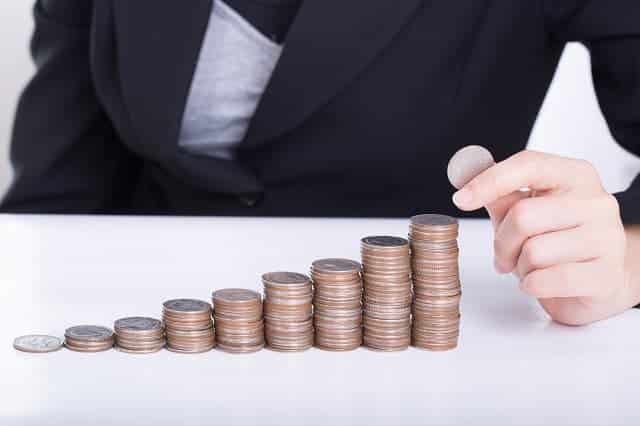Over the past decade, more Americans have become addicted to using peer-to-peer payment services like Cash App to do everything from splitting the bill after a night out to sending money for their niece’s graduation. Millions of people worldwide rely on this simple and secure financial transaction method.
Cash App is well-known for how quickly and easily it facilitates user transfers. However, despite the generally secure nature of Cash App transactions, users are prone to Cash App scams. So, how do you identify and avoid the wide range of Cash App Scams out there? Let’s find out, starting with how Cash App works…
How does Cash App Work?
Cash App users begin by creating a free account that allows them to receive and send money from other users in the same country. After successfully downloading the application, users select a unique username called a “$cashtag.” The $cashtag allows Cash App users to find one another and conduct financial transactions.
After linking the $cashtag to an existing checking account or debit card, Cash App customers can add funds to their accounts. This allows funds to be transferred directly to the user’s bank account, as well as funds to be transferred from the user’s bank account to Cash App.
The app’s two primary functions are to pay others and to be paid. Users can enter money by clicking the “$” icon at the bottom of the app and then selecting “Request” or “Pay” along with the desired $ cash tag. Users can also find one another using an email address or phone number.
Also, users can apply for a Cash Card, a free Visa-verified debit card tied to a specific Cash App account. The Cash Card can be used just like a regular debit card to withdraw cash from atms or make everyday purchases.
Cash App protects customers’ accounts with various security features such as PIN verification, biometric authentication, sign-in codes, and account usage alerts. However, with so many people now using P2P payment services, cybercriminals have a plethora of opportunities to profit from scams.
Is Cash App Secure?
Although users are vulnerable to scams, Cash App provides safety features to help protect them.
Can You Fall Victim to Scams Using Cash App?
Yes, it is possible to be scammed while sending and receiving money through your Cash App account. Some unscrupulous people may attempt to take advantage of you. So, be cautious when using Cash App and follow the company’s safety guidelines. If you come across Cash App scammers, report them right away.
Typical Cash App Scams
Cash App is becoming more popular, and so are Cash App scams. Users of the peer-to-peer mobile payment service can transfer money to one another via a mobile phone app. Cash App is a great money transfer platform, but it has some risks that users should be aware of.
Knowing the most common schemes fraudsters use to defraud you is the first step in protecting yourself and your money. The following are the most common Cash App scams:
#1. Cash App Flipping
During Cash App giveaways, scammers monitor the comment threads for commenters to target. They direct message users to persuade them that they are successful Cash App “flippers” who can turn small sums of cash into large sums of money. They vanish with the funds after convincing a user to give them a sum of money to flip.
Participants in this scam may refer to themselves as a “money circle.”
#2. Payment Claim Scams
Payment claim scams, like cash flipping, involve fraudsters convincing unsuspecting Cash App users that they are entitled to a payment and that in order to claim it, they must first send a smaller amount of cash. Cash App claims that it will never request funds from a customer and that it is not possible to receive payment by sending money to Cash App.
#3. Pet Sales Scams
Con artists often offer pets at unusually low prices and require that they be shipped rather than picked up in person, and the seller requires payment via cash transfer. Of course, the pet never arrives, leaving the victim with no recourse because Cash App does not guarantee refunds.
Rental Scams Cash App warns users about apartment and home rental deposit scams. The con artist claims to have an unusually low-priced rental available but requires a deposit before you can see it. Of course, the scammer will vanish with the money, and the apartment is unlikely to be available for rent.
#4. Cash App Fridays
Common giveaway scams include #CashAppFriday and #SuperCashAppFriday. Ingenious fraudsters use legitimate giveaway comments to post fraudulent giveaways with similar themes. The fake campaign is spread by creating a similar giveaway campaign and asking Cash App users to retweet it.
Scammers may also request that users reply with and/or send them a direct message with their $cashtags in order to “award” them.
#5. Investment Fraud
Because Cash App allows users to buy bitcoin within the app, it is not surprising that there has been an increase in investment scams, often for fraudulent cryptocurrency offerings. Scammers send out emails and text messages promoting bogus can’t-miss investment opportunities, hoping that some people will fail to conduct due diligence before disclosing financial information or investing.
#6. Cash App Impersonation and Phishing Scams
Cash App warns of phishing scams carried out by impersonators. Pretending to be a Cash App service representative, the fraudster contacts a user via email, social media, phone, or text message in order to obtain personal or financial information.
Some fraudsters will even direct victims to fake websites created by the fraudsters as part of their phishing scams, or they will trick the user into giving them access to their phone. Any information entered by the victim is illegally captured by the impersonator once there.
#7. Fake Accidental Transactions
Scammers create a fake Cash App receipt as proof that they sent money to your Cash App account by mistake. They send you a screenshot of the receipt along with a request to return the money, hoping you will do so without first verifying the transaction.
#8. Gift Card Fraud
Cash App scammers attempt to defraud unsuspecting individuals out of gift cards before “paying” out the individuals’ Cash App giveaway money.
They contact victims and ask them to purchase prepaid gift cards from local retailers or popular websites on the scammer’s behalf in order to gain the scammer’s trust. The victims provide the scammer with their credit card information to prove they made the purchase, and the scammer uses the information to essentially steal the card without ever paying out the Cash App giveaway money.
#9. Catfishing Scams
Peer-to-peer apps have made it simple for catfishers — those who create fake social media and dating profiles in order to start online relationships with unsuspecting victims — to steal money from victims. The catfisher online romances the victim and then relies on the victim’s love to fulfill their requests for money to cover a “emergency” or even book a trip for a face-to-face visit that never occurs.
The Growing Popularity of Cash App
Peer-to-peer (P2P) payment services and money transfer apps such as Cash App are gaining popularity due to their convenience and dependability. Today, more than eight out of ten consumers have used a peer-to-peer payment service to complete a financial transaction. Cash App, along with Venmo, PayPal, and Zelle, is one of the most popular peer-to-peer payment services on the market.
When it comes to making payments, Cash App saves users time and effort. There’s no need to rush to the ABM to withdraw cash when you can transfer money with a few clicks on your mobile device.
People use Cash App in a variety of ways, including:
- Bill splitting in a restaurant
- Paying for errands and odd jobs
- Rent is being sent.
- Giving a gift for a birthday or graduation
Not long ago, the only way for people to pay each other was to write a check or withdraw a stack of bills. That is no longer the case, thanks to advancements in technology such as Cash App payment services. Cash App is becoming increasingly popular because it simplifies money management and eliminates the need for traditional banking when making payments between peers.
The Best Way to Avoid a Cash App Scam
How do you know your money is going to the right person when you send it via Cash App? Here are five things you can do to avoid becoming a victim of a Cash App scam.
- Confirm the identity of the recipient. When you send money with Cash App, you will be asked to confirm the recipient’s identity. Before you hit the send button, double-check the recipient’s name and photo.
- Examine the Cashtag of the recipient. Every Cash App user has their own Cashtag. When sending money, double-check that the recipient’s Cashtag is correct. Tap on a person’s name in the app to find their Cashtag.
- Never send money to an unknown person. If someone you don’t know asks you to send them money via Cash App, refuse. This is a sure way to fall victim to a Cash App scam.
- Check to see if it’s genuine. Only send money through Cash App if you are confident it is genuine. When in doubt, err on the side of caution and refrain from sending money. If something doesn’t feel right, it probably is.
- Report possible scams. If you notice any suspicious activity, please notify Cash App. This can be done by going to the app’s settings and selecting “Report a Problem.”
What Should You Do If You Are Scammed Using Cash App?
If you are scammed on Cash App, you should contact Cash App support. You can reach out to support via the app or by visiting their website at cash.app/help. Cash App will then launch an investigation and, if necessary, take appropriate action.
How Do You Get Your Cash App Money Back If You’ve Been Scammed?
You can try a few things to get your money back, such as filing a dispute with Cash App, canceling the payment, or contacting your bank. However, none of these methods are guaranteed to work, and you may not be able to get your money back.
Will Cash App Support inquire about your Cash App PIN?
No, you will not be asked for your Cash App PIN by the Cash App team. Cash App is a safe and simple way to send and receive money without disclosing your personal information. If someone claiming to be from Cash App support asks you for your PIN, please report it right away!
Final Take
Fraudsters are constantly looking for new ways to steal your money. It is your responsibility to remain vigilant and informed about how they defraud people. Keep your sign-in code to yourself. Protect your information because no Cash App representative will ever ask for your sign-in code over the phone, social media, or any other medium.
Cash App’s giveaways may be legitimate, but be wary of shady individuals who target users via direct messages or phone calls in search of free money. Money rarely comes with no strings attached, so if someone contacts you promising quick cash out of nowhere, it’s most likely a scam.
Related Articles
- WHAT IS A CERTIFIED BANK CHECK: How to Get One
- CASHIER’S CHECK SCAMS: How to Identify a Fake Cashier Check
- Certified Checks: What is a Certified Check? (+ How to Get One)
- FACEBOOK MARKETPLACE: Items to Sell, Scam & How to Sell
- WHAT IS WIRE FRAUD? Types, Examples and Penalties






